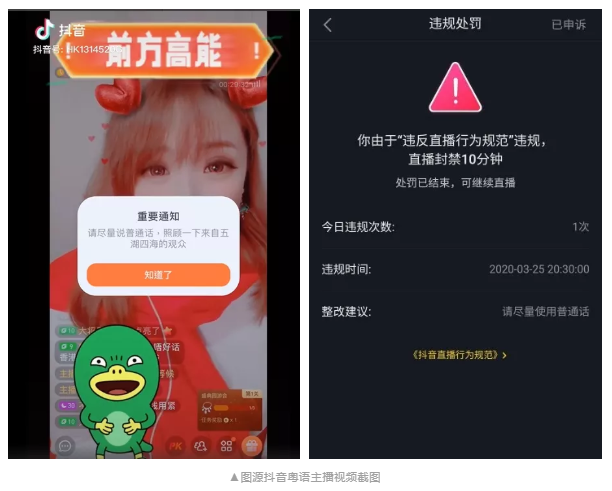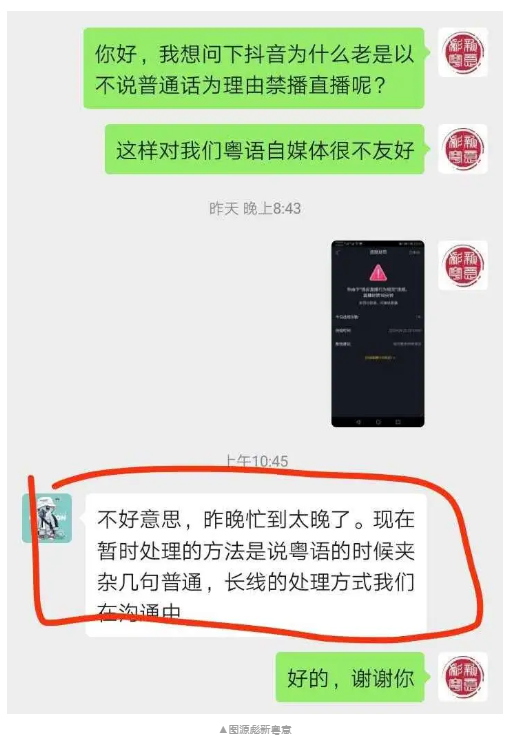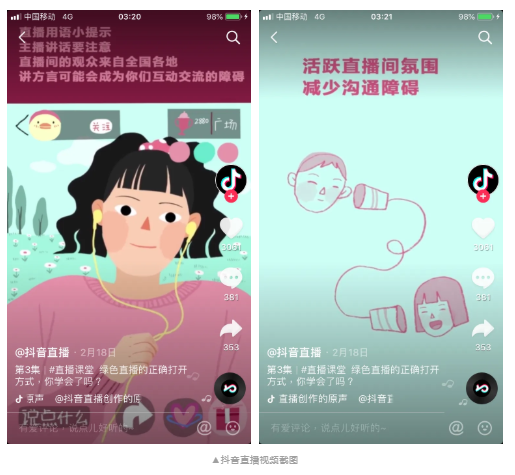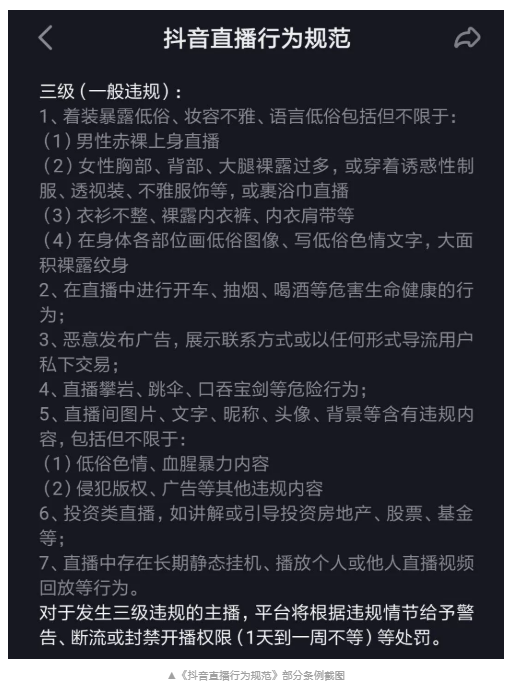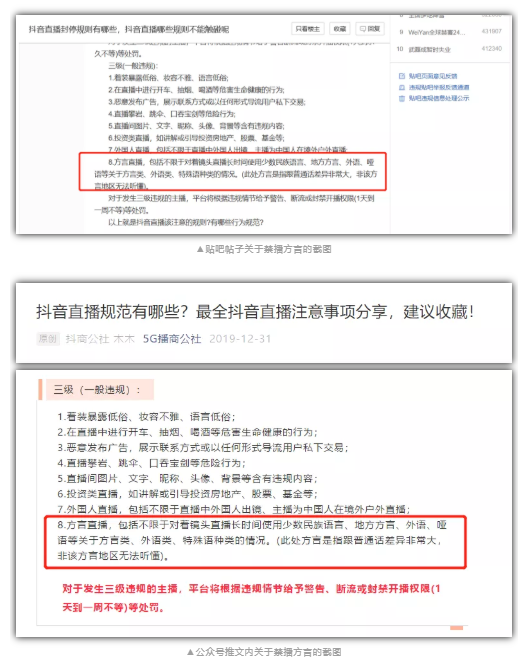THREAD about how Douyin, the Chinese version of #TikTok, is banning livestreamers for speaking Cantonese instead of Mandarin. 1/
On Monday, the Guangzhou-based WeChat account Yangcheng Net (羊城网) posted an article detailing how several Douyin users had received 10-minute bans from the platform for speaking their native Cantonese during livestreams. 2/ https://mp.weixin.qq.com/s/UBDqlu-36GkZZIJ3K0wuRg">https://mp.weixin.qq.com/s/UBDqlu-...
A pop-up notification told the streamers to “Please speak Mandarin to involve more users from other areas (of China).” Among the suggestions for “rectification” was “please speak Mandarin.” 3/
Liang, who manages a Douyin account that promotes Cantonese culture to its 230,000 followers, told our reporter @Stephanietitu that they received two bans and multiple warnings in March. 4/
“We felt very bad when we were banned,” Liang said. “Cantonese has a rich culture and is an essential part of Old Chinese. Many of the words we use are rooted in ancient history that has become lost in Mandarin.” 5/
When Liang contacted Douyin’s PR people, they suggested he try sprinkling a bit of Mandarin into his streams. 6/
(When we contacted PR for ByteDance, TikTok’s large & powerful parent company, they strongly advised us against pursuing the story. We said we were going to anyway, but they went over our heads to get it canned. 7/
Our strong suspicion is that Douyin is under immense pressure from Chinese authorities to make sure nothing “objectionable” slips through the cracks, and that they decided a Mandarin-only rule might be the easiest way to police content. 8/
To be clear, the rule only seems to apply to livestreams on Douyin — not the 15-second viral videos you’re probably familiar with from TikTok.) 9/
Anyway back to Liang, who says he feels Douyin is no longer a friendly environment for Cantonese people or speakers of Chinese dialects.
On that note, here’s an official graphic encouraging users to speak Mandarin to reach a wider audience: 10/
On that note, here’s an official graphic encouraging users to speak Mandarin to reach a wider audience: 10/
“It’s impossible for a platform like ours not to speak Cantonese, because our goal is to let Cantonese speakers know the culture behind their language,” Liang said. “Like, if you were teaching English literature, it would be very strange not to use English.” 11/
(Liang’s account, called 彪新粤意, is also on YouTube if you’d like to check them out there: https://www.youtube.com/channel/UCAUBAfB2oJ5AwXQglxX8evw)">https://www.youtube.com/channel/U... 12/
Accounts with large fan followings aren’t the only ones being targeted. Li Weidong, who hosts a channel on the history of Guangzhou’s Panyu District, told @Stephanietitu he received a warning from Douyin when he had just three or four live viewers. 13/
While Li isn’t too worried about his own content, he feels for those who stream to make a living.
“For users who have accumulated many followers by livestreaming in dialects, the impact (of the ban) could be huge, as it might affect their income,” he said. 14/
“For users who have accumulated many followers by livestreaming in dialects, the impact (of the ban) could be huge, as it might affect their income,” he said. 14/
Curiously, Douyin’s terms of service make no mention of Cantonese or Chinese dialects being prohibited on the platform, according to this photo from the Yangcheng Net article: 15/
However, these unofficial (and unverified) guidelines for Douyin users *do* recommend that content creators avoid nonstandard languages: 16/
TikTok has repeatedly come under fire for heavy-handed censorship. In mid-March, @theintercept reported that the platform’s moderators had been instructed to suppress content from users who were “too ugly, poor, or disabled” for their tastes. 17/ https://theintercept.com/2020/03/16/tiktok-app-moderators-users-discrimination/">https://theintercept.com/2020/03/1...
And last November, TikTok found itself in hot water for censoring the accounts of @x_feroza, a 17-year-old Afghan-American who used “makeup tutorial” videos to draw attention to the plight of #Uighurs interned in China’s far western #Xinjiang region. 18/ https://www.theguardian.com/technology/2019/nov/27/tiktok-makeup-tutorial-conceals-call-to-action-on-chinas-treatment-of-uighurs">https://www.theguardian.com/technolog...
(To its credit, TikTok apologized amid the ensuing wave of public backlash: https://www.theguardian.com/technology/2019/nov/28/tiktok-says-sorry-to-us-teenager-blocked-after-sharing-xinjiang-videos)">https://www.theguardian.com/technolog... 19/
I’ll end this now as I usually do, by stressing that the fact that this is a tweet thread instead of a published article should give you some idea of how much TikTok and its litigious parent company don’t want you to hear about this. 20/end

 Read on Twitter
Read on Twitter